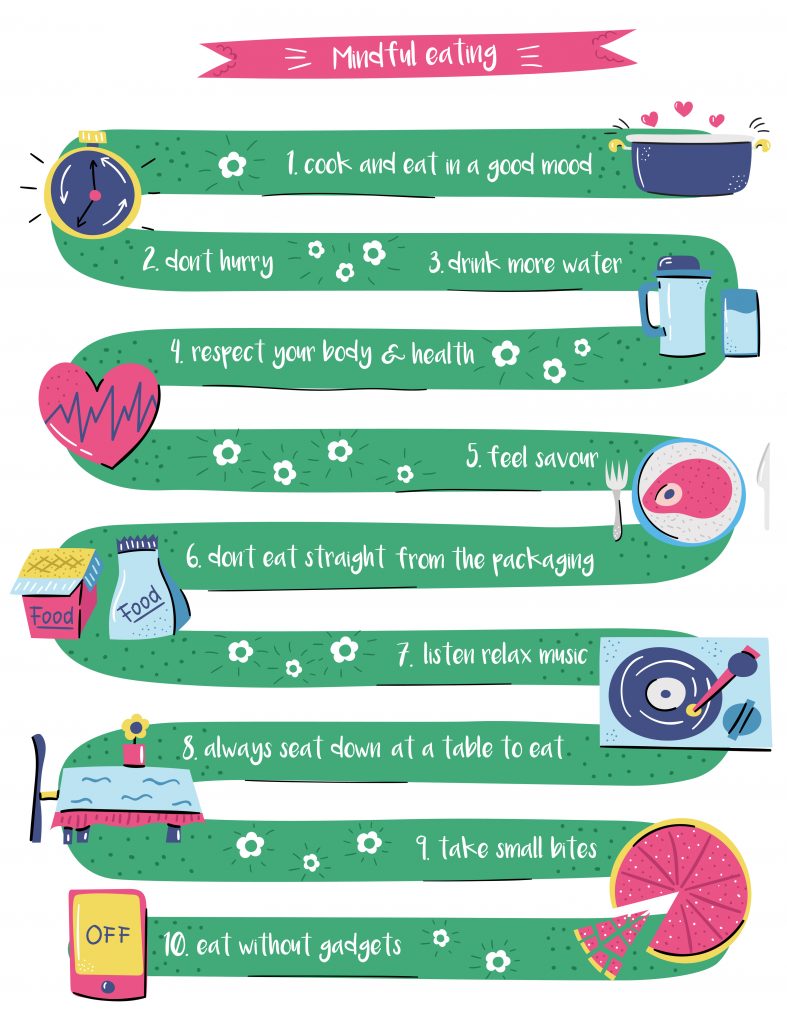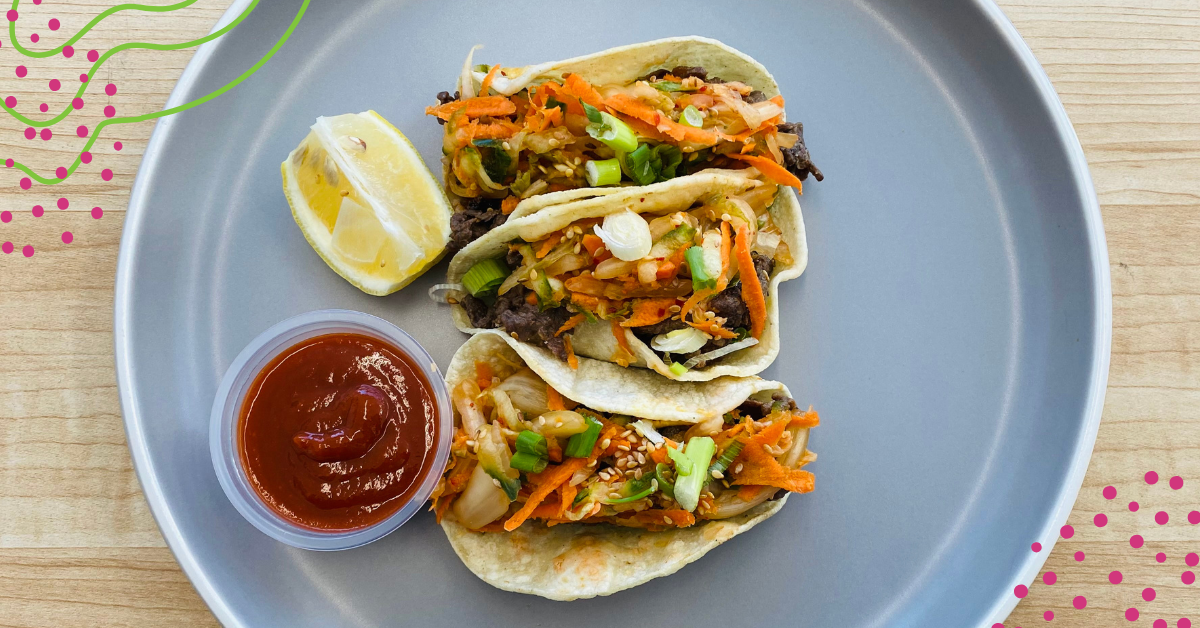We all eat. We all have to eat. Generally, we all love to eat. While our relationship with food is entirely natural, it can also be surprisingly complicated. That’s because eating isn’t just a physical act. There is a strong psychological component behind our eating behaviors and habits. Many of us have motivations for eating the way that we do that we aren’t fully aware of in our conscious minds. Yes, there are emotional, family, cultural, economic and biological underpinnings that can influence our eating behaviors. That’s precisely why a one-size-fits-all diet can never work. It’s also why fad diets can fizzle out quickly.
While many people find short-term success with cutting out specific foods by following diets like low-carb and keto, these changes may not be ideal for everyone looking for sustained results gained through overall healthy habits. Focusing on forming a healthy relationship with food is essential regardless of the specific diet protocol you find works best with your body. Here’s a look at what our diets should be doing for us when everything is in alignment:
- Giving us increased energy.
- Helping us to be alert enough to “show up” for life.
- Allowing us to enjoy food!
- Improving our health by delivering the nutrition we need to thrive.
- Fueling us for an active life.
Here’s a look at what our diets should not be doing for us:
- Serving as a way to hide our feelings by being distracted instead of dealing with our problems.
- Allowing us to feel as though overindulging is the only way we can feel in control of something.
- Creating avoidable, diet-specific issues with our weight, blood sugar, cholesterol or blood pressure.
- Curing boredom.
- Causing shame.
Yes, food should be an experience that we enjoy. However, we shouldn’t necessarily be viewing food as a psychological crutch. That’s not to say that food can’t provide psychological benefits. For instance, having a delicious lunch outdoors with friends can be a soul-nourishing experience. For some people, planning meal prep for a busy upcoming week allows them to feel excited about being ahead of the game.
The First Step: Separating Emotional Hunger From True Hunger
Emotional Hunger is when you think you’re hungry due to stress, happiness or boredom. By contrast, true hunger is a gradual process where your hunger builds up while also providing you with cues to stop eating when you’re satisfied. Generally, people who eat out of emotional hunger will continue eating past satiation. This often leads to feelings of guilt or shame.
“Boredom increases eating in an attempt to distract from this experience, especially among people high in self-awareness,” according to a 2015 study examining why consuming food is used as a tool to escape awareness. The researchers in that study ultimately concluded that boredom could actually promote eating healthy if we’re smart about it. They found that eating more exciting foods is the key to formulating a dietary intervention. That means that people looking to break the cycle of emotional eating may be able to pivot to healthier, balanced diets by eating foods that are exciting and interesting. It’s a great reason to try new foods like organic soba noodles, quinoa bowels or organic strawberry chia pudding.
Stopping the Cycle of Stress Eating
Stress eating is another primary culprit for poor dietary choices. According to the American Psychological Association (APA), 27 percent of adults admit to eating to manage stress. What’s more, 34 percent of those who report either overeating or eating unhealthy foods due to stress say that this behavior is a habit.
Stress can impact our food preferences. Studies show that physical and emotional stress prompt the intake of foods that are high in fat and sugar. Once the fat and sugar are ingested, our stress response and emotions are dampened. As a result, we feel temporarily pacified in the moment. However, many people experience a food “hangover” after using food as a coping technique. This can create a very vicious cycle that leaves you feeling tired, stressed and unproductive. For example, you may reach for a box of sugary cereal because you are stressed while staying up late to get a deadline completed for work. While all that sugar may ease your anxiety in the moment, you will soon have a sugar crash that causes you to feel sluggish and unproductive. This can make it even harder to get through your work to meet your deadline. As a result, you’ll miss even more sleep because you’ll stay up later. That equals a very unproductive night followed by a tough morning. You’re already setting yourself up for an energy deficit in the morning that may perpetuate your stress-overeating-crashing cycle. This is precisely why so many people feel chronically stressed and tired. By contrast, reaching for a high-protein, low-sugar snack to get a sustained energy boost while powering through a work session can help you avoid crashes.
Don’t Sabotage an Opportunity to Build a Healthy Relationship With Food
Some people believe that deprivation is the only way to gain control over cravings and “out of control” eating. In reality, this only feeds into a dangerous cycle of feeling deprived, resentful and out of control in your relationship with food. While having techniques for delaying gratification instead of grabbing for the closest thing when cravings strike is wise, trying to outsmart your body through deprivation is always a bad idea when the goal is to create a balanced, nurturing relationship with food. Here are some simple ways to correct the path if you’ve drifted into an unhealthy territory with eating:
- Don’t skip meals. Plan a meal menu ahead of time if you struggle with knowing what to eat. Prepared, made-to-order delivered meals can help you to stay consistent about getting the proper nutrition if this is a place where you tend to lose your way.
- Keep a judgment-free food journal. The goal is accountability over blame or regret.
- Drink plenty of water! In addition to keeping you satisfied, it’s just good for you!
- Devote your full attention to eating when you’re eating. Carve out a time for eating when you’re not driving, working or watching television. Eating while doing another task reduces enjoyment. “Distracted eating” is linked to weight gain. When we eat while we’re distracted with something else, we also tend to engage in “repeated eating” because we’re not getting the full eating experience.
This is not meant to be a set of strict “rules” to follow. The goal should be to experience the nourishing, delicious food you’re engaging with to avoid the feeling that you’re left wanting more. When we eat based on automatic emotional reasons, we often find that we’re never really full because we haven’t allowed ourselves to truly be present while eating. We’re always chasing the next bite.
A Path Toward a Healthier Food Mindset: Practicing Mindful Eating
One of the ways to overcome automatic eating behaviors is to practice mindful eating. If you’ve spent time researching wellness and self-care, you probably already know that mindfulness can help us combat stress, enjoy our lives and provide perspective. Mindfulness is simply the “quality” or “state” of being conscious of something. While many people use mindfulness techniques to learn how to be still in the moment during everything from meditation to breathing exercises, few ever stop to consider the value of mindfulness when it comes to eating.
Simply making an effort to be aware of your eating experience is a form of mindful eating. When enjoying healthy meals, take time to notice the colors, textures, aromas and flavors of the food you’re eating. Consider how the beautiful, vibrant colors are full of vitamins and antioxidants that will help to keep your body strong.
Here is a visual guide to mindful eating.

The biggest rule of mindful eating is that distractions aren’t allowed! While a dining companion is allowed, you’ll want to shut off any electronics that could take you away from the moment. If you struggle with rushing through meals in a way that makes you finish your plate before your body even feels full, consider setting a timer for 20 minutes. This will help you to pace your bites. The emphasis should be on taking small, slow bites that you savor. The plus side to this is that chewing your food properly actually aids in digestion to help you absorb more usable nutrients. Food mindfulness can even begin before your meals start. When you catch yourself reaching into the fridge or pantry for a snack, always take time to ask yourself if you’re truly hungry. This is a good opportunity for you to explore any anxiety, boredom or feelings of avoidance that may be compelling you to distract yourself with food instead of addressing your emotions.
Final Thoughts on Having a Healthy Food Mindset
Like all things related to the brain and body, diet psychology comes down to making a decision to change for the better. The goal isn’t to cut out comfort foods from your life forever. It’s simply important to be intentional and mindful when it comes to how, what and when we’re eating to make sure that we’re eating to fuel our biological needs instead of our emotional needs. There are many other appropriate outlets in life for getting our emotional needs met. The bottom line is to go in prepared by having a plan for each meal that will help you to avoid the emotional pull of feel-good foods that don’t actually leave you feeling good.
Are you ready to put a stop to emotional eating and become more mindful in your eating habits? Take the first step by shopping for fresh, healthy meals. Our meals are proportioned perfectly to help satisfy you when hungry and help you stop eating full.





